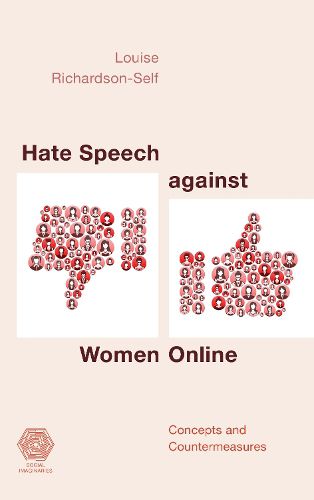Readings Newsletter
Become a Readings Member to make your shopping experience even easier.
Sign in or sign up for free!
You’re not far away from qualifying for FREE standard shipping within Australia
You’ve qualified for FREE standard shipping within Australia
The cart is loading…






Why are women so frequently targeted with hate speech online and what can we do about it? Psychological explanations for the problem of woman-hating overlook important features of our social world that encourage latent feelings of hostility toward women, even despite our consciously-held ideals of equality. Louise Richardson-Self investigates the woman-hostile norms of the English-speaking internet, the 'rules' of engagement in these social spaces, and the narratives we tell ourselves about who gets to inhabit such spaces. It examines the dominant imaginings (images, impressions, stereotypes, and ideas) of women that are shared in acts of hate speech, highlighting their 'emotional stickiness'. But offering strategies through which we may reimagine our norms of online engagement, the stories that justify those norms, and the logic that makes sense of it all, this book shows how we can create alternative visions of what it means to take up online space as a woman and to ensure that women are seen as entitled to be there. By exploring aspects of 'social imaginaries' theory and applying it to the problem of hate speech against women online, this book illuminates why woman-hating has become such a prominent feature of this environment and how we can make these spaces safer for women.
$9.00 standard shipping within Australia
FREE standard shipping within Australia for orders over $100.00
Express & International shipping calculated at checkout
Why are women so frequently targeted with hate speech online and what can we do about it? Psychological explanations for the problem of woman-hating overlook important features of our social world that encourage latent feelings of hostility toward women, even despite our consciously-held ideals of equality. Louise Richardson-Self investigates the woman-hostile norms of the English-speaking internet, the 'rules' of engagement in these social spaces, and the narratives we tell ourselves about who gets to inhabit such spaces. It examines the dominant imaginings (images, impressions, stereotypes, and ideas) of women that are shared in acts of hate speech, highlighting their 'emotional stickiness'. But offering strategies through which we may reimagine our norms of online engagement, the stories that justify those norms, and the logic that makes sense of it all, this book shows how we can create alternative visions of what it means to take up online space as a woman and to ensure that women are seen as entitled to be there. By exploring aspects of 'social imaginaries' theory and applying it to the problem of hate speech against women online, this book illuminates why woman-hating has become such a prominent feature of this environment and how we can make these spaces safer for women.